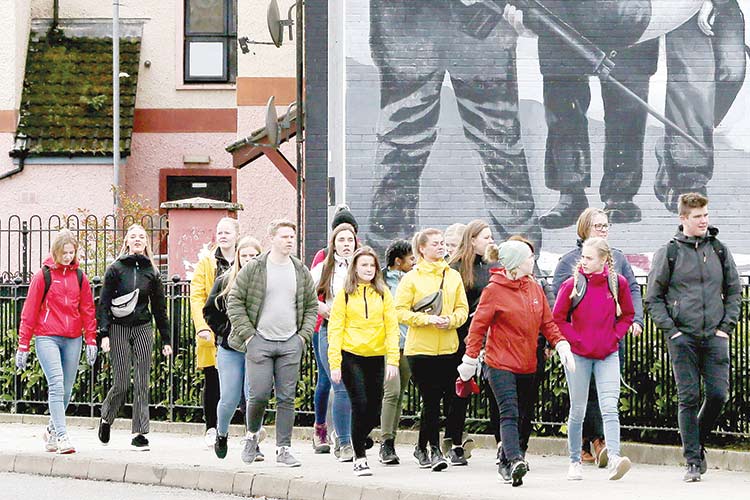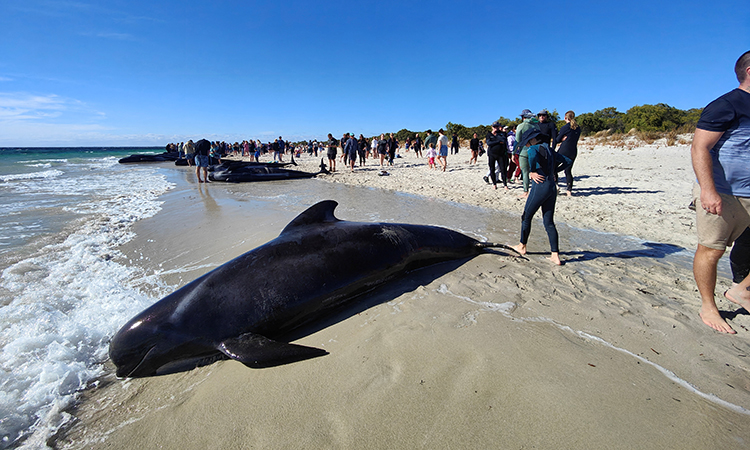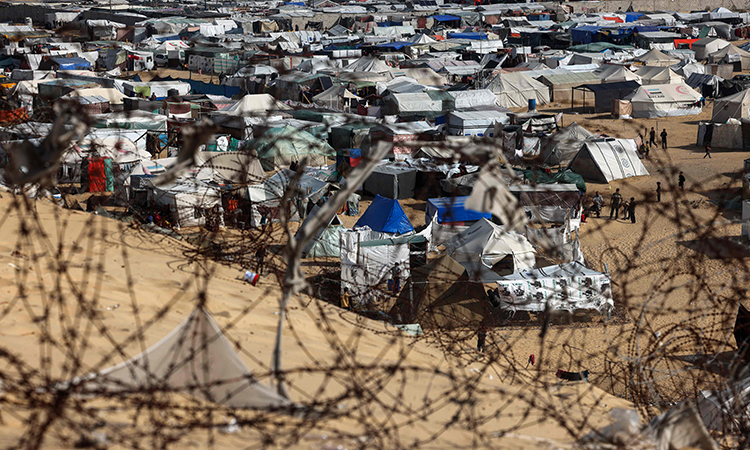EU questions point of extending Brexit

Tourists on a walking tour pass a mural in the Bogside area of Derry, Northern Ireland, on Wednesday. Agence France-Presse
On Tuesday, British MPs rejected the Brexit withdrawal plan that Prime Minister Theresa May had agreed with EU negotiators − with just 16 days to go before Britain is due to leave the bloc.
The lawmakers are to vote again on Wednesday to indicate how they plan to proceed, but Barnier was clear that Brussels will not renegotiate the agreement now.
“After this vote... it will be for the British government to say how it wants to proceed,” Barnier told a meeting of the European Parliament in Strasbourg.
“It is the responsibility of the United Kingdom to tell us what it wants in a future relationship, what is its choice, the clear line that must be its own.
“That’s the question that is open and to which we await a response, and it’s the question that must be answered even before any decision on an extension. Why would we prolong the negotiation? To do what? Because the Article 50 negotiation is finished, we have a treaty, it’s there,” he said, referring to the withdrawal agreement.
Previously, EU officials have suggested that Britain may be given extra time − in a one-off extension that will not be renewed − to agree on an orderly exit plan.
But if Britain is still in the bloc when European Parliamentary elections begin on May 23 then it must allow its own citizens to vote, complicating prospects of a lengthy delay.
Britain’s parliament will vote on Wednesday on whether to leave the European Union in 16 days without an agreement as the government said it would eliminate import tariffs on a wide range of goods in a no-deal Brexit scenario.
British lawmakers on Tuesday handed Prime Minister Theresa May a second humiliating defeat on the Brexit plan she had agreed with the EU, plunging the country deeper into political crisis.
The turmoil leaves the world’s fifth largest economy facing a range of scenarios - it could leave without a transition deal; delay the March 29 divorce date enshrined in law; May could hold a snap election or try a third time to get her deal passed; or Britain could hold another Brexit referendum.
On Wednesday, parliament is expected to reject a no-deal Brexit in a vote, although this will have no legal force. On Thursday, it will then vote on whether to ask the EU for a delay to Brexit, something to which all the bloc’s other 27 members must agree.
However, the default position, if nothing else is agreed, remains that Britain will exit with no deal on March 29, a scenario business leaders warn would bring chaos to markets and supply chains and other critics say could cause shortages of food and medicines.
Supporters of Brexit argue that, while a no-deal divorce might bring some short-term instability, in the longer term it would allow the United Kingdom to thrive and forge trade deals across the world.
Unveiling details of a tariff plan that would last for up to 12 months in the wake of a no-deal scenario, the government said 87 per cent of total imports to the United Kingdom by value would be eligible for tariff-free access, up from 80 per cent now.
Some protections for British producers would remain in place, including for carmakers - major employers in Britain - and beef, lamb, pork, poultry and dairy farmers. But it would expose other manufacturers to cheaper competition.
The government also said it would not introduce checks on goods moving from the Irish Republic to Northern Ireland, a major concern among Irish politicians who fear a hard border could see a return of violence which blighted the British province for more than 30 years until a 1998 peace accord.
May has said the government would not instruct lawmakers from her own Conservative party, bitterly divided over Brexit, on how to vote on Wednesday, as would normally be the case.
Sterling rallied more than half a per cent, trading around $1.3150, on growing expectations that lawmakers would vote against no deal. But Brexit minister Stephen Barclay said it remained preferable to staying in the EU.
“If you pushed me to the end point where it’s a choice between no deal and no Brexit... I think no deal is going to be very disruptive for the economy and I think no deal also has serious questions for the union,” he told BBC radio.
“But I think no Brexit is catastrophic for our democracy. Between those very unpleasant choices, I think no Brexit is the bigger risk.” The EU said there could be no more negotiations with London on the divorce terms, struck with May after two-and-a-half years of tortuous negotiations.
Agencies



